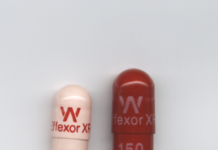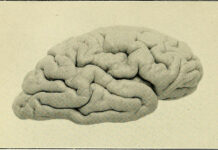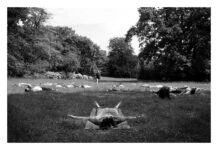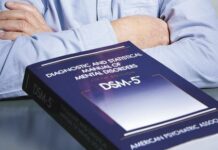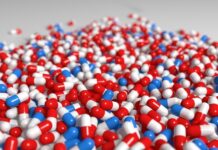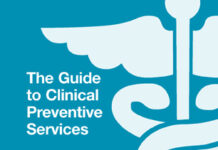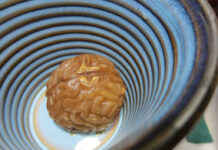Researchers Search for Subgroups Where Antidepressants Are More Effective
The researchers theorized that this increased effectiveness was due not to “antidepressant” properties, but rather to the drug’s side effects, which include insomnia, drowsiness, and nausea.
Childhood Adversity May Increase Risk of Suicide
Swedish study suggests experiencing adversity in childhood is linked to dying by suicide as an adolescent or young adult.
Researchers Fail to Predict Criminal Intent with Brain Scans
A new study in the journal PNAS explores whether brain scans are ineffective at identifying criminal intent in carefully designed situations.
Could ‘Treatment Resistance’ be an Effect of Antidepressants?
Previously taking antidepressants could make individuals less likely to respond to treatment for bipolar II depression.
Veterans with both PTSD and Dementia More Likely to be Prescribed Antipsychotics
Researchers found that veterans with both conditions had higher odds of being prescribed second-generation antipsychotics than those presenting with just PTSD.
New Findings Suggest Masculinity is a Risk Factor for Suicidal Thinking
Men who report being self-reliant may be at greater risk of suicidal thinking.
Added Evidence for Yoga for Major Depression
Randomized controlled trial finds yoga intervention reduces depression severity.
Physical Activity Predicts Fewer Symptoms of Depression in Children
An article published in Pediatrics is the first to examine the relationship between physical activity and depression in middle childhood (years 6 to 10) longitudinally.
Researchers Make a Case for a “Theory of Nothing” in Psychology
What meaning do psychological constructs really hold, and how are they operationalized and statistically modeled within psychology research?
A Healthier Diet Reduces Depressive Symptoms
The “Mediterranean diet” has been associated with reduced risk of depressive symptoms, and a new study demonstrates that dietary changes may be an effective treatment intervention.
Professionals Push Back on Psychiatric Diagnostic Manual, Propose Alternatives
Criticisms of the DSM-5 spark alternative proposals and calls to reform diagnostic systems in the mental health field.
Animal Study Supports Influence of Probiotics on Resilience to Stress
Researchers experimenting on mice found that Lactobacillus—the probiotic commonly found in yogurt—may help reduce depressive symptoms in reaction to chronic stressors. But human studies have found mixed results.
An Alternative Perspective on Psychotherapy: It is Not a ‘Cure’
Kev Harding argues against conceptualizations of therapy as a ‘cure’ to an ‘illness’ and instead offers alternative approaches.
Collaborative Care Effective for Older Adults with Depressive Symptoms
A new study suggests that depressive symptoms in older adults can be improved with non-invasive behavioral activation techniques. These approaches appear to have a preventative effect, serving to prevent further depressive symptoms from developing.
Despite Increase in Treatments, Prevalence of Mental Health Issues Climbs
Findings show that despite increases in treatment availability, the prevalence of mental health issues has not decreased.
Experts Concerned That Depression Screening Will Lead to Overdiagnosis
Behind the U.S. task force recommendation to screen all children and adults for depression.
Transition into Poverty May Worsen Child and Maternal Mental Health
Transitioning into poverty linked to behavioral issues in children, but may be mitigated by mother’s mental health.
Patient Race Associated with Varied Psychiatric Treatment Experiences
Findings point to association between race and the mental health care experiences of African-American and White veterans.
New Medications Fail to Show Efficacy for Alzheimer’s Disease
Three phase III clinical trials assessing the efficacy of Lundbeck’s investigational drug idalopirdine for Alzheimer’s disease have failed
Neuroscience-based Treatment Program Proposed for Adolescent Depression
A study published in Frontiers in Human Neuroscience proposes a new model for the treatment of adolescents diagnosed with major depressive disorder (MDD).
Researcher Acknowledges His Mistakes in Understanding Schizophrenia
Sir Robin Murray, a professor at the Institute of Psychiatry, Psychology, and Neuroscience in London, states that he ignored social factors that contribute to ‘schizophrenia’ for too long. He also reports that he neglected the negative effects antipsychotic medication has on the brain.
Brain Scans Cannot Differentiate Between Mental Health Conditions
A new study analyzing over 21,000 participants found that differences in activation of brain regions in different psychological “disorders” may have been overestimated, and confirms that there is still no brain scan capable of diagnosing a mental health concern.
Antidepressant Use May Increase Risk of Hip Fractures in Older Adults
Study finds antidepressant use is linked to increase in hip fractures in community-dwelling older adults with and without Alzheimer’s disease.
Treating Metabolic Conditions May Resolve Some Depressive Symptoms
New research suggests that treatable metabolic abnormalities underlie some treatment-resistant cases of depression—and treating the metabolic condition has the possibility of dramatically reducing depressive symptoms
Importance of Physical Symptoms in Mental Health Evals
Researchers at Harvard Medical School highlight the need for mental health clinicians to explore the meaning of physical symptoms and pain

